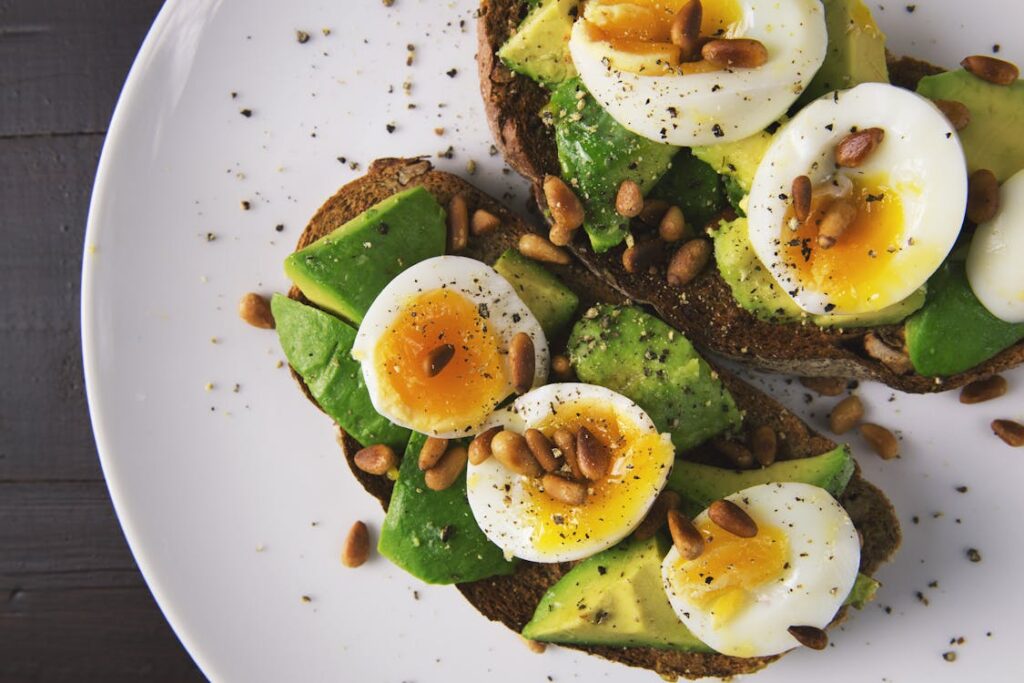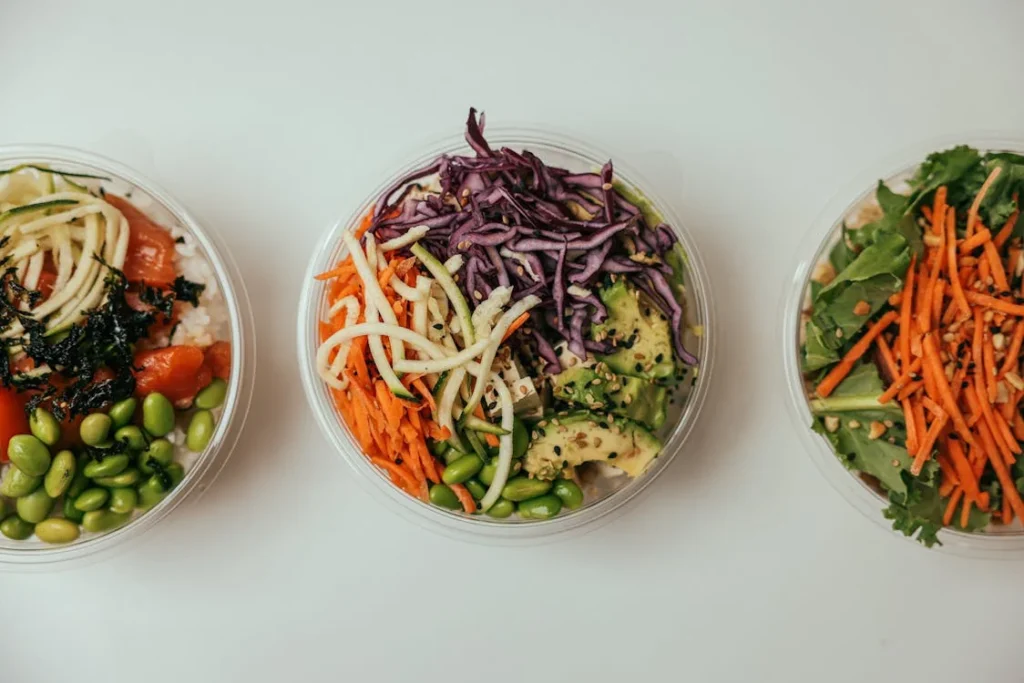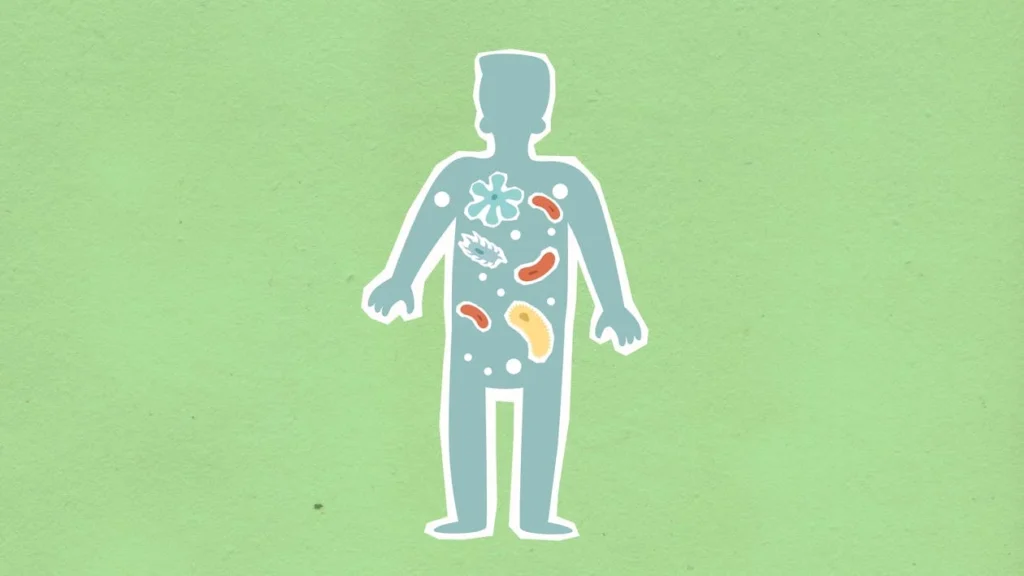Nerve health is a major part of recovery after amputation surgery. The nervous system controls movement, sensation, and healing, making it essential to care for your nerves during the recovery process. Proper nutrition plays a key role in keeping the nerves healthy, reducing pain, and improving overall function.
After surgery, nerves in the residual limb go through a healing process. Some people experience nerve pain, tingling, or phantom limb sensations, which can make daily life more challenging. The right foods can help repair nerve damage, reduce inflammation, and support the body’s ability to adjust to new physical demands.

How Nutrition Supports Nerve Health After Amputation
The nervous system is responsible for sending signals between the brain and the body. After amputation surgery, the nerves in the residual limb go through a period of adjustment.
Some nerves may have been severed during surgery, while others may need to rewire themselves to function properly. This process can cause sensations like tingling, numbness, or even phantom limb pain.
Proper nutrition helps nerves repair themselves and improves their ability to send signals without excessive pain or discomfort.
The Connection Between Diet and Nerve Repair
Nerves are made up of tiny fibers that need the right nutrients to function properly. When the body lacks essential vitamins and minerals, nerve signals can become weak or irregular, leading to increased pain or slower recovery.
Certain foods provide the nutrients needed to protect the nerves, repair damage, and reduce inflammation that can worsen nerve pain.
Proteins, healthy fats, and specific vitamins all work together to support nerve health. Protein provides the building blocks for tissue repair, while healthy fats help maintain the protective coating around nerve fibers.
Vitamins like B12, B6, and folate are essential for nerve regeneration and reducing nerve-related pain. Omega-3 fatty acids, found in certain foods, help reduce inflammation and improve nerve function.
Reducing Nerve Pain with Anti-Inflammatory Foods
Inflammation is one of the biggest causes of nerve pain. After surgery, the body experiences natural inflammation as part of the healing process, but too much inflammation can slow recovery and make pain worse.
Foods rich in antioxidants, such as berries, leafy greens, and nuts, help reduce inflammation and promote faster healing.
Sugar and processed foods can increase inflammation in the body, making nerve pain worse. While it may be tempting to rely on convenient, processed foods during recovery, they can slow down nerve healing.
Replacing these with nutrient-rich foods ensures that the body has everything it needs to support nerve regeneration and reduce pain.
Hydration and Its Role in Nerve Health
Water is essential for keeping nerves healthy. Dehydration can make nerve signals weaker, leading to more discomfort and slower healing.
Staying hydrated helps the body flush out toxins, improve circulation, and keep nerves functioning properly. Herbal teas and natural juices can also provide hydration while delivering additional antioxidants and vitamins that support nerve health.

Best Foods to Strengthen and Heal Nerves After Amputation
Eating the right foods can make a significant difference in how the body recovers after amputation surgery. Certain nutrients help nerves regenerate, reduce pain, and improve overall function.
By including nerve-supporting foods in your diet, you can speed up healing and make the recovery process smoother.
Protein-Rich Foods for Nerve Repair
Protein plays a crucial role in nerve healing. After an amputation, the body needs protein to rebuild damaged tissues and support nerve regeneration.
Lean meats like chicken and fish provide high-quality protein along with essential vitamins that help repair nerve fibers. Eggs are also an excellent source of protein, offering choline, which is important for nerve signal transmission.
For those who prefer plant-based sources, lentils, beans, and tofu provide the necessary protein without relying on animal products.
These foods also contain fiber, which supports overall digestive health and helps maintain stable blood sugar levels, an important factor in nerve function.
Healthy Fats to Protect Nerve Fibers
The protective coating around nerves, known as the myelin sheath, is made up of fats. Without enough healthy fats, nerve signals may not transmit efficiently, leading to weakness, numbness, or increased pain.
Omega-3 fatty acids, found in fatty fish like salmon and sardines, help repair and protect nerves while reducing inflammation.
Nuts and seeds, such as walnuts, flaxseeds, and chia seeds, are also rich in omega-3s. Adding these to meals or snacks can support nerve health and improve overall well-being.
Avocados provide another great source of healthy fats, along with fiber and vitamins that help with nerve regeneration.
B Vitamins for Nerve Regeneration
B vitamins, especially B1, B6, and B12, are essential for nerve health. They help rebuild damaged nerves, improve signal transmission, and prevent conditions like neuropathy, which can cause pain and tingling sensations.
Foods rich in B vitamins include whole grains like brown rice and oats, as well as dairy products like milk and yogurt.
Dark leafy greens, such as spinach and kale, provide folate, which is another important nutrient for nerve repair. These greens also contain antioxidants that help protect nerve cells from damage and improve circulation, which is essential for delivering nutrients to healing tissues.
Antioxidant-Rich Foods to Reduce Nerve Pain
Inflammation and oxidative stress can damage nerves and slow down healing. Eating antioxidant-rich foods helps reduce this damage and supports faster recovery. Berries like blueberries, strawberries, and blackberries contain powerful antioxidants that protect nerve cells.
Turmeric, a spice with strong anti-inflammatory properties, can also help manage nerve pain. Adding turmeric to meals, along with black pepper to enhance its absorption, may provide relief from discomfort and promote better nerve function.

Foods That Improve Blood Circulation for Faster Nerve Healing
Good blood circulation is essential for nerve recovery after amputation surgery. Blood carries oxygen and nutrients to damaged nerves, helping them regenerate and function properly.
Poor circulation can slow down healing, increase pain, and make it harder for the body to adjust to changes. Certain foods can naturally improve blood flow, ensuring that nerves get the support they need.
Iron-Rich Foods for Better Oxygen Supply
Iron plays a key role in transporting oxygen throughout the body. Without enough iron, the blood cannot efficiently deliver oxygen to healing nerves, which can slow down the recovery process.
Foods like lean red meat, poultry, and seafood are excellent sources of iron. For vegetarians, lentils, chickpeas, and fortified cereals provide plant-based iron.
Vitamin C helps the body absorb iron more effectively, so pairing iron-rich foods with citrus fruits, bell peppers, or tomatoes can improve oxygen delivery to the nerves. Drinking fresh lemon water with meals can also enhance iron absorption and support overall circulation.
Foods That Naturally Improve Blood Flow
Certain foods help keep blood vessels open and flexible, improving circulation and nerve function. Garlic is well known for its ability to relax blood vessels and improve blood flow. Adding fresh garlic to meals can support nerve health while also boosting the immune system.
Beets are another powerful circulation-boosting food. They contain nitrates, which help widen blood vessels and improve oxygen flow to nerves and muscles. Drinking beet juice or adding roasted beets to salads can enhance circulation and reduce inflammation.
Dark chocolate, particularly varieties with a high cocoa content, contains flavonoids that improve blood flow and reduce nerve pain. Eating a small amount of dark chocolate daily can be a delicious way to support nerve recovery.
Hydration and Its Role in Circulation
Staying hydrated is crucial for maintaining good circulation. Water helps keep blood flowing smoothly, preventing clotting and reducing inflammation. Dehydration can cause blood to thicken, making it harder for oxygen and nutrients to reach the nerves.
Herbal teas, coconut water, and natural fruit juices can provide hydration along with additional nutrients that support nerve health. Green tea, in particular, contains antioxidants that improve blood vessel function and enhance circulation.
By including circulation-boosting foods in your diet, you can help your nerves heal faster and reduce discomfort. Proper blood flow ensures that the body gets the nutrients it needs to repair itself, making recovery after amputation surgery smoother and more effective.

Foods to Avoid That Can Harm Nerve Health
While certain foods help nerves heal and function properly, others can slow down recovery and even worsen nerve pain.
After an amputation, it is important to be mindful of what you eat, as some foods can cause inflammation, weaken nerve signals, and lead to complications like poor circulation or increased pain.
Avoiding these foods can make a significant difference in how well your nerves heal and how comfortable you feel during recovery.
Processed Foods That Increase Inflammation
Highly processed foods, such as packaged snacks, instant noodles, and fast food, contain unhealthy fats, artificial additives, and excessive sodium.
These ingredients can increase inflammation in the body, making nerve pain worse and slowing down healing. Foods high in trans fats, like fried foods and margarine, can damage nerve cells by promoting oxidative stress and inflammation.
Sugar-filled foods, including pastries, soda, and candy, also contribute to inflammation. High sugar intake can cause blood sugar spikes and crashes, which negatively affect nerve function.
Over time, excess sugar can damage small blood vessels, reducing circulation to the nerves and making it harder for them to regenerate.
Alcohol and Its Impact on Nerves
Alcohol can have a toxic effect on the nervous system, making it harder for nerves to send signals properly. Heavy alcohol consumption can lead to nerve damage, numbness, and increased pain sensitivity.
It also depletes essential B vitamins, which are crucial for nerve repair and function.
For amputees in recovery, limiting or avoiding alcohol can help prevent additional nerve damage and improve overall healing.
Replacing alcoholic beverages with healthier options like herbal teas or infused water can keep the body hydrated while supporting nerve health.
Excessive Caffeine and Nerve Sensitivity
While moderate caffeine intake is generally safe, excessive amounts can overstimulate the nervous system, making nerve pain more noticeable.
Caffeine can also interfere with sleep, which is essential for nerve healing. Poor sleep quality can slow down recovery and make phantom limb sensations or nerve discomfort worse.
Switching to herbal teas or decaffeinated beverages in the afternoon and evening can help reduce caffeine intake while still enjoying a warm, comforting drink.
Green tea, which contains antioxidants, is a better alternative for those who want a mild energy boost without overstimulating the nerves.
Artificial Additives and Preservatives
Many packaged foods contain artificial flavors, colors, and preservatives that may contribute to nerve irritation. Monosodium glutamate (MSG), often found in instant soups, chips, and processed meats, has been linked to nerve sensitivity and discomfort in some people.
Reading ingredient labels and choosing whole, unprocessed foods as much as possible can help eliminate unnecessary chemicals from the diet.
Cooking meals at home using fresh ingredients ensures that the body gets the nutrients it needs without the harmful effects of artificial additives.
By avoiding foods that increase inflammation, damage nerves, or interfere with healing, amputees can create a diet that supports nerve health and reduces pain.
Making mindful food choices can speed up recovery, improve energy levels, and make adjusting to life after amputation easier.

Creating a Nerve-Healing Meal Plan for Faster Recovery
Eating the right foods consistently is key to improving nerve health after amputation surgery. While knowing which foods are beneficial is important, creating a structured meal plan helps ensure the body gets the right nutrients every day.
A well-balanced diet can reduce inflammation, speed up nerve repair, and improve overall strength and energy levels.
Starting the Day with a Nerve-Boosting Breakfast
Breakfast is the first opportunity of the day to provide the body with essential nutrients. A protein-rich meal that includes eggs, Greek yogurt, or a smoothie with nuts and seeds helps fuel nerve regeneration.
Whole grains such as oats or whole-wheat toast provide steady energy, while adding berries or a sprinkle of flaxseeds delivers antioxidants and healthy fats.
For those who prefer a savory option, avocado toast with smoked salmon provides omega-3 fatty acids, which reduce inflammation and protect nerve fibers. Drinking a glass of warm lemon water or green tea alongside breakfast can enhance circulation and support digestion.
Lunches That Support Nerve Health and Reduce Pain
Midday meals should focus on a mix of protein, fiber, and healthy fats. A grilled chicken salad with spinach, walnuts, and olive oil dressing provides B vitamins, antioxidants, and essential fatty acids.
Lentil soup with whole-grain bread is another great choice, offering plant-based protein along with fiber for steady energy.
For those using prosthetics, maintaining steady energy levels throughout the day is important. Including a portion of complex carbohydrates, such as quinoa or sweet potatoes, ensures that the body gets enough fuel without causing blood sugar spikes that may affect nerve function.
Healing Dinners for Muscle and Nerve Regeneration
Dinner should focus on foods that support overnight nerve repair. Grilled salmon with roasted vegetables and brown rice provides a combination of protein, omega-3s, and minerals that aid in healing.
Stir-fried tofu with mixed greens and turmeric-seasoned rice can be a great vegetarian option, offering anti-inflammatory benefits while supporting nerve health.
Including magnesium-rich foods like spinach, almonds, and pumpkin seeds at dinner can also help relax the nervous system and improve sleep quality.
Drinking a warm cup of chamomile tea or turmeric milk before bed can reduce nerve pain and inflammation, promoting a restful night’s sleep.
Smart Snacking to Maintain Nerve Strength
Between meals, the body still requires nutrients to keep nerves healthy. Snacks like mixed nuts, hummus with vegetable sticks, or a small bowl of yogurt with honey provide steady nourishment.
Dark chocolate with a high cocoa content can also be a good choice, as it contains flavonoids that improve circulation and nerve function.
Hydration should not be overlooked throughout the day. Drinking enough water, herbal teas, and natural fruit juices ensures that nutrients are properly absorbed and toxins are flushed out, keeping the nervous system functioning at its best.
A well-structured meal plan helps amputees stay on track with their recovery, ensuring that nerves get the support they need. Consistently eating healing foods makes a significant difference in how the body adapts, reduces pain, and improves overall well-being.

The Role of Gut Health in Nerve Recovery
A strong nervous system doesn’t just depend on what you eat—it also depends on how well your body absorbs nutrients. The gut plays a crucial role in nerve healing, as it processes the vitamins, minerals, and antioxidants needed for nerve repair.
A healthy gut microbiome helps reduce inflammation, improve nutrient absorption, and even influence pain perception. After amputation surgery, supporting gut health can improve overall recovery and make nerve healing more efficient.
How the Gut and Nervous System Are Connected
The gut and the nervous system are closely linked through the gut-brain axis, a communication system between the digestive system and the brain.
When gut health is compromised, it can lead to increased inflammation, which may slow down nerve recovery. An unhealthy gut can also make it harder to absorb essential nutrients like B vitamins, magnesium, and omega-3 fatty acids, all of which are crucial for nerve function.
Some research suggests that an imbalanced gut microbiome may even contribute to nerve pain. Certain harmful bacteria in the gut can trigger inflammation throughout the body, worsening conditions like phantom limb pain or neuropathy.
On the other hand, a balanced gut with beneficial bacteria helps regulate pain signals and reduces overall discomfort.
Probiotic and Prebiotic Foods for a Healthy Gut
Probiotics are live bacteria that support digestion and improve gut health. Foods like yogurt, kefir, and fermented vegetables such as kimchi or sauerkraut introduce beneficial bacteria into the digestive system.
These bacteria help break down food more effectively, allowing the body to absorb the nutrients needed for nerve regeneration.
Prebiotics, which feed the good bacteria in the gut, are just as important. Foods like garlic, onions, bananas, and whole grains provide the fiber that beneficial bacteria thrive on.
Including these in your diet can help strengthen the gut lining and create a healthy environment for nutrient absorption.
Avoiding Foods That Harm Gut Health
Just as some foods support gut health, others can weaken it. Processed foods high in artificial preservatives, excessive sugar, and unhealthy fats can disrupt the gut microbiome, leading to increased inflammation and poor nutrient absorption.
Excessive alcohol and certain medications, such as antibiotics, can also disturb the balance of gut bacteria.
Stress and poor sleep can negatively affect gut health as well. The gut-brain connection means that emotional stress can lead to digestive issues, while poor gut health can contribute to feelings of anxiety or discomfort.
Managing stress through mindfulness techniques, light physical activity, and proper sleep hygiene can improve both gut and nerve health.
Hydration and Digestive Health
Drinking enough water is essential for digestion and nutrient absorption. When the body is dehydrated, it struggles to transport essential nutrients to nerves and muscles.
Staying hydrated with water, herbal teas, and fiber-rich foods ensures that digestion remains smooth and effective.
By focusing on gut health, amputees can improve their body’s ability to heal, absorb nerve-supporting nutrients, and reduce overall inflammation. A healthy gut means a stronger nervous system, leading to better recovery and long-term well-being.

Lifestyle Habits That Enhance the Effects of a Nerve-Healing Diet
Eating the right foods is a powerful way to support nerve health after amputation surgery, but diet alone is not enough. Lifestyle choices, including physical activity, sleep, and stress management, all play a role in how well nerves recover.
When combined with proper nutrition, these habits can improve circulation, reduce pain, and help the body heal more efficiently.
The Importance of Regular Movement
Staying active is crucial for nerve health. Gentle movement helps improve circulation, ensuring that oxygen and nutrients reach the nerves and muscles.
For amputees, physical therapy and rehabilitation exercises are essential in preventing stiffness, improving coordination, and promoting nerve regeneration.
Simple activities like stretching, light yoga, or even controlled breathing exercises can help keep the nervous system engaged. If mobility is limited, working with a physical therapist to develop a customized exercise plan can prevent muscle atrophy and encourage nerve function.
Quality Sleep for Nerve Repair
Sleep is the time when the body carries out most of its healing processes. During deep sleep, nerve cells regenerate, inflammation decreases, and the brain processes pain signals.
Without enough rest, nerve recovery can slow down, leading to increased discomfort and prolonged healing times.
To improve sleep quality, creating a consistent bedtime routine can be helpful. Reducing screen time before bed, practicing relaxation techniques, and avoiding heavy meals late at night can all contribute to better rest.
Drinking a warm herbal tea, such as chamomile or valerian root tea, may also support relaxation and reduce nerve-related discomfort.
Managing Stress to Support the Nervous System
Chronic stress can have a negative impact on nerve health. High stress levels release hormones that increase inflammation, weaken the immune system, and slow down healing. Stress can also make nerve pain feel worse by increasing sensitivity to discomfort.
Mindfulness practices such as meditation, deep breathing, and journaling can help manage stress and improve overall well-being. Spending time in nature, engaging in hobbies, or practicing gratitude can also have a calming effect on the nervous system.
The Role of Sunlight and Vitamin D
Vitamin D is an important nutrient for nerve health, helping to reduce inflammation and support nerve signal transmission. One of the best ways to get vitamin D is through sunlight exposure.
Spending 15–20 minutes in natural sunlight each day can help maintain healthy vitamin D levels.
For those who have limited access to sunlight, foods such as fatty fish, fortified dairy products, and egg yolks can provide vitamin D. In some cases, supplements may be needed, but it is always best to consult a doctor before taking additional vitamins.
Staying Hydrated for Better Circulation and Nerve Function
Hydration plays a crucial role in nerve signaling. When the body is dehydrated, nerve cells do not function as efficiently, leading to increased pain and slower recovery.
Drinking enough water throughout the day ensures that nutrients are transported effectively and that toxins are flushed out.
Coconut water, herbal teas, and natural fruit juices can also contribute to hydration while providing additional antioxidants and minerals. Avoiding excessive caffeine and sugary drinks helps maintain stable energy levels without disrupting nerve function.
By combining a nerve-supporting diet with healthy lifestyle habits, amputees can improve their recovery, reduce pain, and regain mobility more effectively.
A balanced approach that includes proper nutrition, movement, rest, and stress management creates the best conditions for nerve healing and long-term well-being.
Conclusion
Recovering from amputation surgery is a journey that requires a combination of proper nutrition, healthy habits, and patience. Nerve health plays a crucial role in the healing process, affecting pain levels, mobility, and overall well-being. By focusing on nutrient-rich foods that support nerve regeneration—such as lean proteins, healthy fats, B vitamins, and antioxidants—amputees can strengthen their nervous system and reduce discomfort.
Beyond diet, lifestyle choices like regular movement, quality sleep, stress management, and hydration further enhance nerve healing. Small, consistent efforts in these areas can lead to significant improvements in recovery and long-term health. Avoiding processed foods, excess sugar, and inflammation-triggering ingredients ensures that the body gets the best support for nerve function.
At Robobionics, we understand the challenges of post-amputation recovery and are committed to helping individuals regain strength and confidence. By making mindful food choices and adopting a nerve-supporting lifestyle, amputees can improve their quality of life and adapt to their new normal with greater ease. If you’re looking for more guidance on rehabilitation and prosthetic solutions, reach out to us today and take the next step toward a healthier future.



